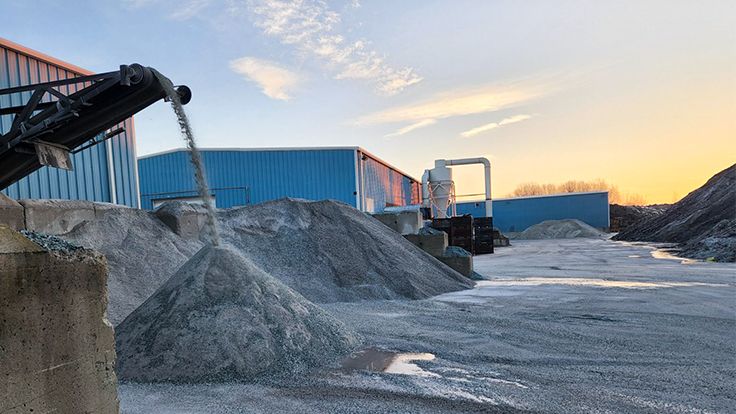News and ViewsAugust 20, 2024
Spectrum Bores Under Railroad Tracks to Deliver Reliable Internet to Ohio Glass Processing Business
Share Article:
Delivering high-speed internet in rural areas can mean overcoming challenges like rugged terrain, bedrock, rivers and lakes. When Spectrum connected Upper Sandusky, Ohio-based Dlubak Glass it involved boring 25 feet under railroad tracks.
Walter & Mary Dlubak started their small glass recycling business out of their garage in 1932. Today, Dlubak Glass, now headquartered in Upper Sandusky, has grown to become one of the largest national recyclers and processors of glass. The family-owned, fourth-generation company has five plants located in Kentucky, Ohio, Oklahoma, Pennsylvania, and Texas, in addition to numerous depots throughout the U.S., Canada and Mexico.
Ohio Lt. Governor Jon Husted“Ohio is a state where we find ways to solve problems for people and businesses. Our administration has prioritized closing the digital divide across the state through the Ohio Broadband Strategy, and we support private investments that will make expanded internet a reality for residents and businesses.”
Throughout nearly nine decades of growth, this business lacked one crucial element: fast broadband. The company used DSL to work online, making downloading and uploading files painfully slow and limiting automations made possible by high-speed internet.
“This side of the railroad tracks was a black hole as far as internet access,” said Bryan Pino, Environmental Health and Safety Manager, Dlubak Glass.
The company’s main plant sits some 250 feet west of the CSX Railroad — a challenge that required coordination with the local railroad and power companies to bore deep under the tracks with sophisticated machinery to complete delivery of reliable Spectrum Internet.
“Broadband access is our lifeline. Spectrum's effort to bring internet to our headquarters underneath the railroad tracks has helped us improve communications, increase productivity and avoid the bottlenecks we used to encounter when tracking data needed to manage our supply chain,” said Bryan.

The business now uses an online product management solution to document and track incoming and outgoing truckloads of glass the company buys and sells. With its improved connectivity, the company can now take advantage of VoIP communications, video calls, and VPN – all of which has saved the business time and created efficiency.
“We had infrastructure built up to the railroad just east of the tracks,” said Jonathan Puckett, Spectrum Construction Coordinator. “As part of our broadband expansion, skilled crews managed the process of boring under the tracks and once through, we completed the aerial connection.”
Dlubak Glass is one of many businesses that have benefited from Charter’s multi-year subsidized Rural Construction Initiative, an investment of approximately $9 billion – a portion of which will be offset with over $2 billion in government support funding – to ultimately connect approximately 1.75 million new homes and small businesses across the country.
With 295,000 new locations activated in 2023 and an additional approximately 450,000 new locations expected to be activated in 2024, Charter is already making great progress on this expansion.
More information about Spectrum’s commitment to expanding broadband access can be found here.
